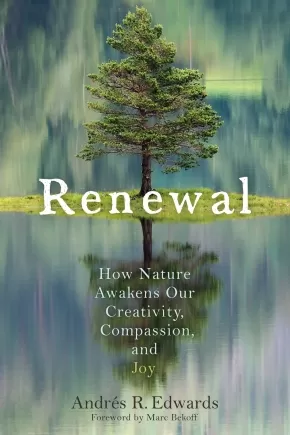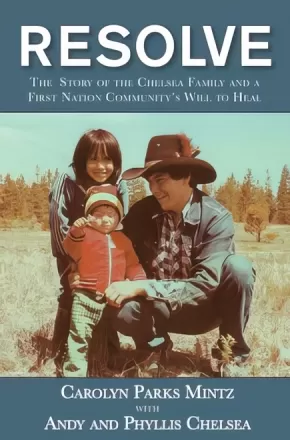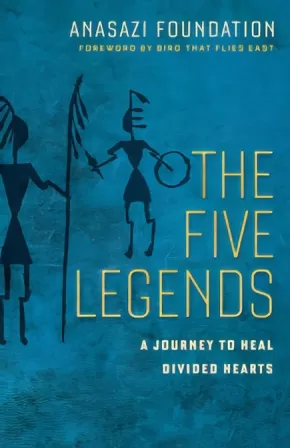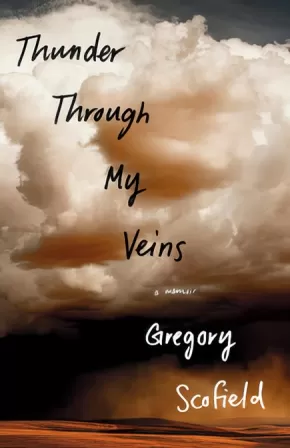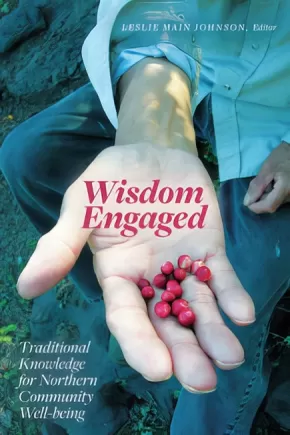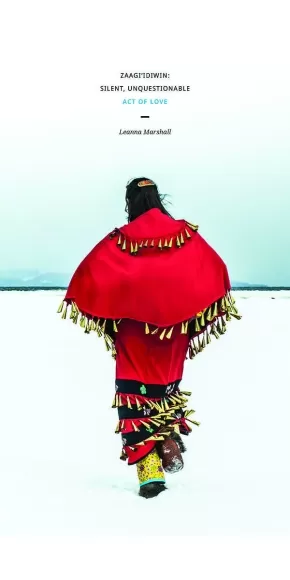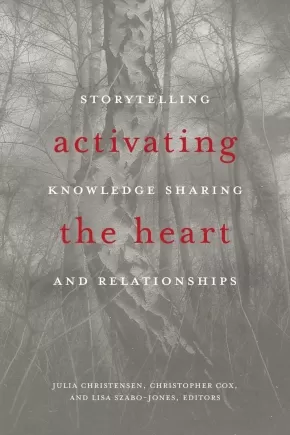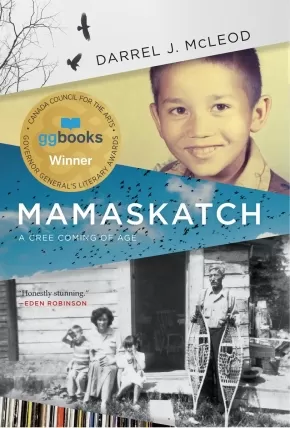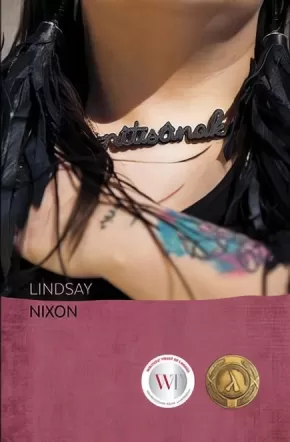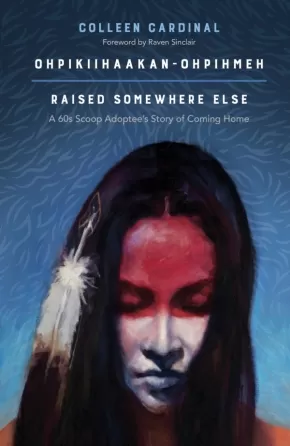Healing
Synopsis:
Explore our emotional bond with nature to heal ourselves and the natural world.
Why spend countless hours indoors in front of screens when being in nature feels so good? In learning why and how to nurture our emotional connection with nature, we can also regenerate the ecosystems on which we depend for our survival.
Renewal explores the science behind why being in nature makes us feel alive and helps us thrive. Using personal experiences and cutting-edge research in cognitive science, this book weaves delightful stories that:
- Reveal nature's genius and impacts on our lives from physical, emotional, intellectual, and spiritual perspectives
- Explore how emulating nature is yielding design breakthroughs with biomimicry and biophilic design
- Highlight the importance of compassion and coexisting with wildlife in designing our conservation strategies
- Describe the significance of nurturing an ecological ethic that supports a reciprocal relationship with nature.
Whether you are drawn to conservation or are interested in the science behind human behavior, Renewal will help create a blueprint for integrating nature with a life of creativity, compassion, and joy.
Additional Information
|
Synopsis:
Andy and Phyllis Chelsea met during their years spent at the St. Joseph’s Mission School in Williams Lake, BC. Like the thousands of others forced into the church-run residential school system, Andy and Phyllis are no strangers to the ongoing difficulties experienced by most Indigenous peoples in Canada. The couple married in 1964 but brought the trauma of their mission school years into their marriage. The Chelseas’ struggle with alcohol came to an abrupt halt in 1971 when their daughter, Ivy, then aged seven, stated that she and her brothers did not want to live with their parents because of the drinking, that they would stay with their Grandmother, their Kye7e. Andy and Phyllis chose sobriety to preserve their family. This decision sparked a lifetime of activism for the couple, which included overcoming the challenges caused by Canada’s disregard for their community. Throughout the twenty-seven years Andy was Chief of the Alkali Lake Esk’et First Nation, the Chelseas worked to eradicate alcoholism and took steps to overcome the rampant intergenerational trauma that existed for the people of Alkali Lake. Their efforts, their story and the perseverance of the members of their village have inspired Indigenous groups facing similar struggles throughout the world.
Resolve: The Chelsea Story and a First Nation Community’s Will to Heal explores the harrowing, personal journey of the Chelseas. By combining personal interviews and historical records, biographer Carolyn Parks Mintz shares the Chelseas’ transition from residential schools to state-sanctioned reservations to international recognition of their activism in the face of ongoing repression. A simultaneous celebration of strength and a condemnation of systemic racism, Resolve is a personal and deeply moving story that calls for a closer look at the status of Canada’s reconciliation efforts from the Chelseas’ perspective.
Educator Information
Recommended in the Canadian Indigenous Books for Schools 2020/2021 resource list for grades 10 to 12 for English Language Arts, Social Studies, and Social Justice.
Caution: Alcoholisms, trauma, physical and sexual abuse.
Additional Information
240 pages | 6.00" x 9.00"
Synopsis:
Drawing on 30 years of helping families, this profound fable by the Anasazi Foundation illustrates the true anguish of conflict and explains how we can end war within ourselves, within our families, and even between nations.
Created in 1988 by renowned wilderness pioneers Larry D. Olsen and Ezekiel C. Sanchez (a Totonac Indian whose native name is Good Buffalo Eagle), the Anasazi Foundation invites young people, through a wilderness living experience, to effect a change of heart. For over thirty years, their teachings have helped families begin anew and walk in harmony in the wilderness of the world.
Inspired by their wisdom, this book tells the story of two brothers whose warring hearts threaten to destroy their lives and their community. Trapped in a canyon, the two brothers are rescued by a mysterious old man who perceives their need for peace. He offers to guide them home -- inviting them to open their hearts toward a New Beginning. When they agree, he teaches them the five legends of peace. And as they walk forward, they learn that we are free to create peace in our own lives--and how to do it. This discovery saves not only the brothers but ultimately their people. This poetic narrative offers us all a hopeful way out of the canyons of war, leaving behind the warring within.
This poetic and moving allegory is written for all ages. Its message is both timeless and desperately needed for our own time.
Reviews
“As the ANASAZI program grew, I put my efforts into developing a companion program to include parents and families in the powerful principles their children were learning on the trail. ANASAZI is not just our vision—it is the Creator's work. The Five Legends is based on our work to help heal divided hearts." —Sherrel Olsen, Co-Founder Mother of ANASAZI Foundation
“The Five Legends is a heartwarming book about peace and the power of family. I highly recommend it." —Steve Young, NFL Hall of Fame quarterback and ESPN commentator
“Having taught youth for over twenty years (some of whom were labeled ‘at-risk’), I can definitively say most youth are in need of a book like The Five Legends. This book is perfect for teenagers as it doesn’t come across as preachy but instead allows them to arrive at the principle on their own.” —Mark Rice, High School English Teacher
“A touching story of reconciliation, new beginnings, and shared humanity. Written from the heart for the heart.” —The Jenkins Family (Bruce, Shari and Aly), Friends of ANASAZI Foundation
“This book inspired me to be more understanding of others. It can be easy to find fault with our ‘brothers.’ The Creator is the path to love, harmony and forgiveness, and following that path allows us to live in the ‘WE’ world.” —Mike Tetmeyer, Retired Sr. Vice President of Marketing of Hy-Vee Food Stores
“The Five Legends is a life-changing fable about a mother’s unconditional love and how seeing people truthfully can change everything.” —Ganel-Lyn Condie, Speaker and Bestselling Author
Additional Information
120 pages | 5.50" x 8.44"
Synopsis:
A qaggiq, or large communal iglu, is a place of community renewal and celebration.
In many Inuit communities late winter and early spring gatherings, with all the markers of Qaggiq, have persisted through modernization. The Qaggiq process has always been used to share news and knowledge, and to enjoy feasts and friendly skill-building competitions. They are also forums for community justice and healing work. Qaggiq is at the centre of renewal, as it begins when people have survived another winter.
In The Qaggiq Model, Janet Tamalik McGrath considers how the structure and symbolism of the Qaggiq can be used to understand Inuit-centred methodologies toward enhanced wellbeing in Inuit communities.
Drawing on interviews with the late philosopher and Inuit elder Mariano Aupilarjuk, along with her own life—long experiences, McGrath bridges Inuktut and Western academic ways of knowing. She addresses the question of how Inuktut knowledge renewal can be supported on its own terms. It is through an understanding of Inuktut knowledge renewal, McGrath argues, that the impacts of colonialism and capitalism can be more effectively critiqued in Inuit Nunangat.
The Qaggiq Model offers new ways of seeing how Inuit-centred spaces can be created and supported toward communal well-being. This wide-ranging work will be of interest to scholars of epistemology, Indigenous studies, and Canadian studies, as well as all readers with an interest in Inuit worldviews.
Additional Information
410 pages | 6.00" x 9.00" | English with Inuktitut Transcripts
Synopsis:
Indigenous naturopathic doctor Nicole Redvers pairs evidence-based research with traditional healing modalities, addressing modern health problems and medical processes
Modern medical science has finally caught up to what traditional healing systems have known for centuries. Many traditional healing techniques and medicines are often assumed to be archaic, outdated, or unscientific compared to modern Western medicine. Nicole Redvers, a naturopathic physician and member of the Deninu K'ue First Nation, analyzes modern Western medical practices using evidence-informed Indigenous healing practices and traditions from around the world--from sweat lodges and fermented foods to Ayurvedic doshas and meditation. Organized around various sciences, such as physics, genetics, and microbiology, the book explains the connection between traditional medicine and current research around epigenetics and quantum physics, for example, and includes over 600 citations. Redvers, who has traveled and worked with Indigenous groups around the world, shares the knowledge and teachings of health and wellness that have been passed down through the generations, tying this knowledge with current scientific advances. Knowing that the science backs up the traditional practice allows us to have earlier and more specific interventions that integrate age-old techniques with the advances in modern medicine and technology.
Reviews
"Redvers illuminates the common ground that underlies both traditional and conventional healing practices. Each chapter identifies and analyzes the different cultural assumptions that can keep healing practices separate from one another, while the depth of the author’s knowledge allows us to see the ways in which these different practices can be rooted in the wisdom of the body. A call for the holistic healing that integrates multiple traditions for healing of mind, body, emotion, and spirit.”—Robin Wall Kimmerer, PhD, author of Braiding Sweetgrass
“Drawing on her own unique upbringing and total lived experience—melding wisdom received from her Dene elders of Northern Canada and lessons learned from witnessing illness, poverty, despair, and environmental degradation in various parts of the world—Redvers provides unique insight that only a First Nations person and practicing integrative medicine doctor can bring. The Science of the Sacred is a compass pointing toward a much-needed rebellion in healing. The revolution of the self begins!”—Alan C. Logan, co-author of Your Brain on Nature
“Nicole Redvers neatly ties together her cultural Dene roots and stories from other Indigenous cultures in an evidence-informed manner to look at medicine, the health of our planet, and the health of humans as individuals and societies. She poses questions and solutions that deserve exploration and will keep you thinking long after finishing this, her first work.”—Paul Saunders, PhD, ND
“This is a powerful and courageous book of personal and planetary healing. It points directly to the core of all of our problems, where also lie the path to our solutions. Drawing on modern science and the ancient wisdom of the First Nations Elders it makes a resounding call for change, carefully balancing the well-reasoned practicalities with the inspiration and passion needed to achieve these. In a cataclysmic era for human and planetary health a seismic shift is needed—that we may rediscover our purpose, our roots and our sense of self, from which all else flows. Dr. Redvers takes us boldly to that frontier, and shows us where we might cross the threshold to a new era of health.” —Susan Prescott, MD, PhD, president of inVIVO Planetary Health, paediatrician and immunologist, University of Western Australia
Additional Information
296 pages | 6.04" x 8.98"
Synopsis:
Gregory Scofield's Thunder Through My Veins is the heartbreakingly beautiful memoir of one man's journey toward self-discovery, acceptance, and the healing power of art.
Few people can justify a memoir at the age of thirty-three. Gregory Scofield is the exception, a young man who has inhabited several lives in the time most of us can manage only one. Born into a Métis family of Cree, Scottish, English and French descent but never told of his heritage, Gregory knew he was different. His father disappeared after he was born, and at five he was separated from his mother and sent to live with strangers and extended family. There began a childhood marked by constant loss, poverty, violence and self-hatred. Only his love for his sensitive but battered mother and his Aunty Georgina, a neighbor who befriended him, kept him alive.
It wasn't until he set out to search for his roots and began to chronicle his life in evocative, award-winning poetry, that he found himself released from the burdens of the past and able to draw upon the wisdom of those who went before him. Thunder Through My Veins is Gregory's traumatic, tender and hopeful story of his fight to rediscover and accept himself in the face of a heritage with diametrically opposed backgrounds.
Additional Information
256 pages | 5.18" x 8.00"
Synopsis:
Wisdom Engaged demonstrates how traditional knowledge, Indigenous approaches to healing, and the insights of Western bio-medicine can complement each other when all voices are heard in a collaborative effort to address changes to Indigenous communities’ well-being. In this collection, voices of Elders, healers, physicians, and scholars are gathered in an attempt to find viable ways to move forward while facing new challenges. Bringing these varied voices together provides a critical conversation about the nature of medicine; a demonstration of ethical commitment; and an example of successful community relationship building.
Contributors: Alestine Andre, Janelle Marie Baker, Robert Beaulieu, Della Cheney, Mida Donnessey, Mabel English, Christopher Fletcher, Fort McKay Berry Group, Annie B. Gordon, Celina Harpe, Leslie Main Johnson, Thea Luig, Art Mathews, Linda G. McDonald, Ruby E. Morgan, Keiichi Omura, Evelyn Storr (Inuvialuit Regional Corporation), Mary Teya, Nancy J. Turner, Walter Vanast, Darlene Vegh
Educator Information
Keywords: Traditional Knowledge, Well-Being, Health
Subjects and Course Areas: Social Science, History, Indigenous Studies, Anthropology, Health and Medicine
Additional Information
|
Authenticity Note: This book has received the Authentic Indigenous Text label because of its contributions from Indigenous peoples. Non-Indigenous contributors are also included.
Synopsis:
Zaagi'idiwin: Silent, Unquestionable Act of Love, creates an intersection where viewers meet to understand and explore the essence of relationships, the meaning of connection/disconnection, and the pain of loss. Through the making and documentation of jingle dresses, Marshall explores the deeply personal stories that have shaped her perception of the complexities of her family history in the context of Canadian history. The social inequities, resistance, and sorrow communicated in this body of work serve as a springboard to examine the act of compassion and forgiveness, which ultimately helps to move forward to a new and more affirmative place of being.
Additional Information
28 pages | 5.25" x 10.50"
Synopsis:
Activating the Heart is an exploration of storytelling as a tool for knowledge production and sharing to build new connections between people and their histories, environments, and cultural geographies. The collection pays particular attention to the significance of storytelling in Indigenous knowledge frameworks and extends into other ways of knowing in works where scholars have embraced narrative and story as a part of their research approach.
In the first section, Storytelling to Understand, authors draw on both theoretical and empirical work to examine storytelling as a way of knowing. In the second section, Storytelling to Share, authors demonstrate the power of stories to share knowledge and convey significant lessons, as well as to engage different audiences in knowledge exchange. The third section, Storytelling to Create, contains three poems and a short story that engage with storytelling as a means to produce or create knowledge, particularly through explorations of relationship to place.
The result is an interdisciplinary and cross-cultural dialogue that yields important insights in terms of qualitative research methods, language and literacy, policy-making, human–environment relationships, and healing. This book is intended for scholars, artists, activists, policymakers, and practitioners who are interested in storytelling as a method for teaching, cross-cultural understanding, community engagement, and knowledge exchange.
Educator Information
This book would be useful for the following subjects: Indigenous Studies, Literary Criticism, Creative Writing, and Social Science.
Recommended in the Canadian Indigenous Books for Schools 2019-2020 resource list as being useful for grades 11-12 for English Language Arts and Social Studies.
Additional Information
220 pages | 6.00" x 9.00"
Edited by Julia Christensen, Christopher Cox and Lisa Szabo-Jones.
Authenticity Note: Contributors to this work identify with various First Nations and Metis communities. Therefore, the Authentic Indigenous Text label has been applied. It is up to readers to determine if this will work as an authentic resource for their purposes.
Synopsis:
Every single year in Canada, one-third of all deaths among Indigenous youth are due to suicide. Studies indicate youth between the ages of ten and nineteen, living on reserve, are five to six times more likely to commit suicide than their peers in the rest of the population. Suicide is a new behaviour for First Nations people. There is no record of any suicide epidemics prior to the establishment of the 130 residential schools across Canada.
Bestselling and award-winning author Tanya Talaga argues that the aftershocks of cultural genocide have resulted in a disturbing rise in youth suicides in Indigenous communities in Canada and beyond. She examinees the tragic reality of children feeling so hopeless they want to die, of kids perishing in clusters, forming suicide pacts, or becoming romanced by the notion of dying — a phenomenon that experts call “suicidal ideation.” She also looks at the rising global crisis, as evidenced by the high suicide rates among the Inuit of Greenland and Aboriginal youth in Australia. Finally, she documents suicide prevention strategies in Nunavut, Seabird Island, and Greenland; Facebook’s development of AI software to actively link kids in crisis with mental health providers; and the push by First Nations leadership in Northern Ontario for a new national health strategy that could ultimately lead communities towards healing from the pain of suicide.
Based on her Atkinson Fellowship in Public Policy series, Tanya Talaga’s 2018 Massey Lectures is a powerful call for action and justice for Indigenous communities and youth.
Educator Information
Curriculum Connections: Indigenous Studies, History, Humanities and Social Sciences, Health
Additional Information
320 pages | 5.00" x 8.00"
Synopsis:
Fully illustrated with gorgeous color photographs of the forest and its inhabitants, Among Trees is a lush guided journal that helps you record and reflect on your therapeutic trips into the woods. Use the blank pages to capture the date, season, weather, and location of specific outings. Creative prompts throughout will help you deepen your experience. Inspirational quotes and sidebars on the benefits of forest bathing pepper the pages for added motivation and depth.
Reviews
"[This journal] can help you add this delightful practice to your life and help you experience greater health on all levels.” —New Spirit Journal
Additional Information
224 Pages | 6" x 8.25"
Synopsis:
A powerful story of resilience—a must-read for all Canadians.
Growing up in the tiny village of Smith, Alberta, Darrel J. McLeod was surrounded by his Cree family’s history. In shifting and unpredictable stories, his mother, Bertha, shared narratives of their culture, their family and the cruelty that she and her sisters endured in residential school. McLeod was comforted by her presence and that of his many siblings and cousins, the smells of moose stew and wild peppermint tea, and his deep love of the landscape. Bertha taught him to be fiercely proud of his heritage and to listen to the birds that would return to watch over and guide him at key junctures of his life.
However, in a spiral of events, Darrel’s mother turned wild and unstable, and their home life became chaotic. Sweet and innocent by nature, Darrel struggled to maintain his grades and pursue an interest in music while changing homes many times, witnessing violence, caring for his younger siblings and suffering abuse at the hands of his surrogate father. Meanwhile, his sibling’s gender transition provoked Darrel to deeply question his own sexual identity.
The fractured narrative of Mamaskatch mirrors Bertha’s attempts to reckon with the trauma and abuse she faced in her own life, and captures an intensely moving portrait of a family of strong personalities, deep ties and the shared history that both binds and haunts them.
Beautifully written, honest and thought-provoking, Mamaskatch—named for the Cree word used as a response to dreams shared—is ultimately an uplifting account of overcoming personal and societal obstacles. In spite of the traumas of Darrel’s childhood, deep and mysterious forces handed down by his mother helped him survive and thrive: her love and strength stayed with him to build the foundation of what would come to be a very fulfilling and adventurous life.
Reviews
“Honestly stunning. McLeod’s clear writing lays bare his complicated ties to his family, his lovers and his country in a memoir that moved and haunted me. If you loved Maria Campbell’s Halfbreed, you will love Mamaskatch.” — Eden Robinson, author of Son of a Trickster and Monkey Beach
“Reading the text was like diving into the eternity of dreams and being paralyzed by a nightmare. However, there is sunrise. Told candidly and with heartbreaking honesty, McLeod’s memoir shows how survival beckoned and he held on to the spirit of his ancestors—the love that no one can ever sever. He lives for all of us. — Louise Bernice Halfe, author of Burning in this Midnight Dream
“A compelling read that shows the heartbreaking results of imposed oppression. Darrel has identity problems of many kinds and the result is a life full of chaos. The gradual climb out of that dark place is touching.” — Bev Sellars, former councillor and chief of the Xat’sull First Nation and author of Price Paid.
“Mamaskatch is a profound and tender love song, an elegy to a wounded family, and an unsparing, exquisitely moving chronicle of growing up “Nehiyaw” (Cree). Like the birdsong his mother taught him to understand, McLeod’s voice is magical; it will lift and carry you through bone-breaking grief with grit, optimism and wry, life-saving humour. You will not leave this book unchanged.” — Denise Ryan, journalist, Vancouver Sun
"Darrel McLeod’s Mamaskatch is a heart-wrenching mîwâsin memoir full of vignettes that are so intricately woven that they guide you through with grace, sâkihiwêwin, humour, and maskihkîy. This is a narrative built through continuums that detail the lives of the McLeod family through their queer travails, trans realities, bannock and stew conversations, and a plethora of intergenerational traumas and triumphs. I can feel the warm embrace of the Three Sisters wrapping around me as I read this, that heart-drum beat resounding beneath its literary cadences, the frigidity of the Athabasca kissing my heels, and a narrator who teaches me from his very first passage in this novel that a good story is a medicine song that re-members and re-animates, in true nehiyawewin fashion, those who have paved the way for us and those who for whom we pave. Ay-hay, Darrel, for this lovely work that lulls me back into those old-fashioned country songs that nearly every prairie kokôm raised us on. Mâmaskâc!" — Joshua Whitehead, author of Full-Metal Indigiqueer and Jonny Appleseed
Additional Information
240 pages | 6.00" x 9.00"
Synopsis:
Lindsay Nixon's nîtisânak honours blood and chosen kin with equal care. A groundbreaking memoir spanning nations, prairie punk scenes, and queer love stories, it is woven around grief over the loss of their mother. It also explores despair and healing through community and family, and being torn apart by the same. Using cyclical narrative techniques and drawing on their Cree, Saulteaux, and Métis ancestral teachings, this work offers a compelling perspective on the connections that must be broken and the ones that heal.
Awards
- 2019 Indigenous Voices Award short-listed
- 2019 The Dayne Ogilvie Prize for LGBTQ Emerging Writers
Reviews
"A tremendous gift... unlike any other reading experience I've had" - Leanne Betasamosake Simpson
"A triumph of decolonial and non-normative storytelling." -Dayne Ogilvie Prize for LGBTQ2S+ Emerging Writers jury citation
"nitisanak is wildly interesting, thoughtful, and tender, but also utterly uncompromising." -Jessie Loyer, The Capilano Review
Additional Information
200 pages | 5.25" x 8.00" |
Synopsis:
During the 60s Scoop, over 20,000 Indigenous children in Canada were removed from their biological families, lands and culture and trafficked across provinces, borders and overseas to be raised in non-Indigenous households.
Ohpikiihaakan-ohpihmeh — Raised Somewhere Else delves into the personal and provocative narrative of Colleen Cardinal’s journey growing up in a non- Indigenous household as a 60s Scoop adoptee. Cardinal speaks frankly and intimately about instances of violence and abuse throughout her life, but this book is not a story of tragedy. It is a story of empowerment, reclamation and, ultimately, personal reconciliation. It is a form of Indigenous resistance through truth-telling, a story that informs the narrative on missing and murdered Indigenous women, colonial violence, racism and the Indigenous child welfare system.
Reviews
“With Canadians slowly awakening to the reality of the 60s Scoop and its ongoing repercussions, Cardinal’s inspiring work here is essential reading and will be an integral resource for generations to come.” — Waubgeshig Rice, author of Legacy
“Offers a window through which readers can see why cultural suppression is such a dark chapter in Canada’s history.” — Winnipeg Free Press
“I highly recommend reading this story for anyone interested in learning more about the Sixties Scoop and understanding what’s really happening under the stereotypes put on many Indigenous by those who do not truly understand.” — All Booked
Educator Information
The Canadian Indigenous Books for Schools list recommends this resource for Grades 10-12 for English Language Arts.
Additional Information
214 pages | 6.00" x 9.00" | Foreward by Raven Sinclair
Synopsis:
Ancient indigenous wisdom to light the way toward a contemporary path for everyone seeking a more loving and balanced world.
Drawing from ancestral knowledge, as well as her experience as an attorney and activist, Sherri Mitchell addresses some of the most crucial issues of our day—including indigenous land rights, environmental justice, and our collective human survival. Sharing the gifts she has received from the elders of her tribe, the Penobscot Nation, she asks us to look deeply into the illusions we have labeled as truth and which separate us from our higher mind and from one another. Sacred Instructions explains how our traditional stories set the framework for our belief systems and urges us to decolonize our language and our stories. It reveals how the removal of women from our stories has impacted our thinking and disrupted the natural balance within our communities.
For all those who seek to create change, this book lays out an ancient worldview and set of cultural values that provide a way of life that is balanced and humane, that can heal Mother Earth, and that will preserve our communities for future generations.
Additional Information
256 pages | 5.50" x 8.48" | Paperback

